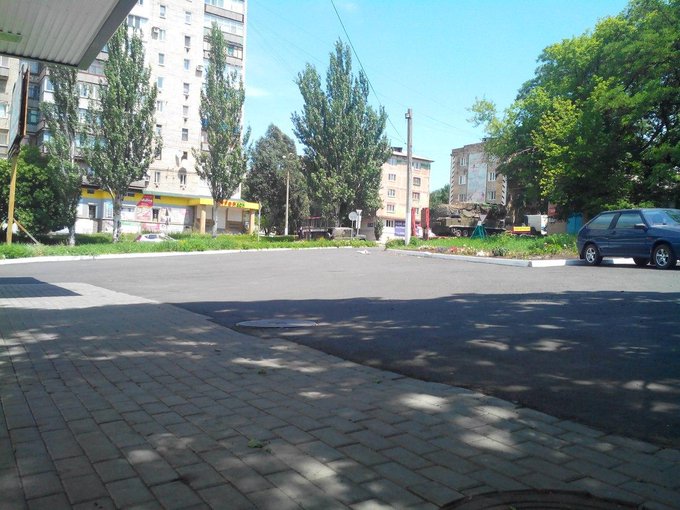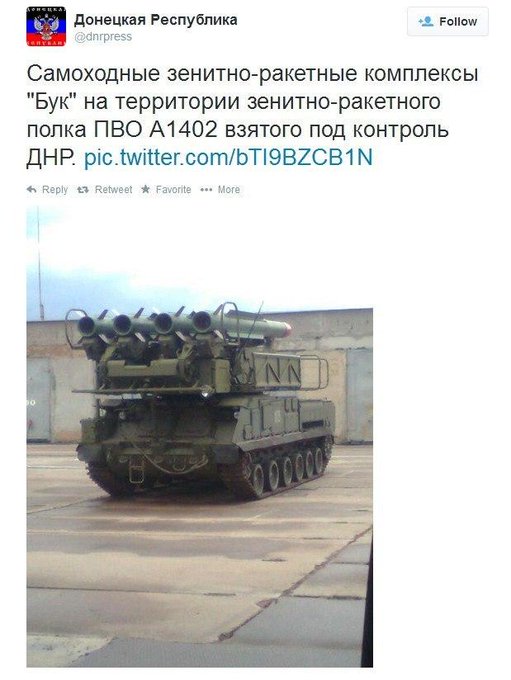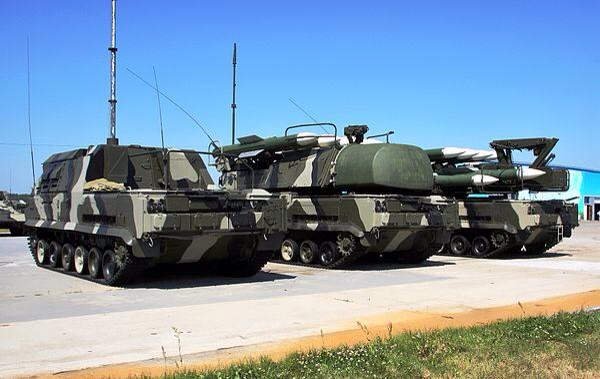(U.S. intelligence community)
Senior U.S. intelligence officials presented evidence today that they say makes a “solid case” as to why the U.S. believes a Russian made SA-11 missile fired from separatist-held eastern Ukraine shot down Malaysia Airlines Flight 17 last week.
While the leading theory is that Russian separatists brought down the plane, the U.S. intelligence community still cannot determine who pulled the trigger or why. The officials pointed the finger at Russia for having “created the conditions” behind the shoot-down and labeled as “not plausible” new Russian claims that the plane may have been brought down by a Ukrainian fighter jet.
In a briefing with reporters, senior intelligence officials pointed to a variety of evidence, including the detection of a surface-to-air missile launch from a separatist-held area of eastern Ukraine. They cited Russian training of separatists in air defense systems, though not necessarily the SA-11, and Russian separatists having used other air defense systems to bring down 12 aircraft in recent months.
They also noted images posted on social media showing an SA-11 missile system near the area of that launch and one system headed towards Russia missing at least one missile in the hours after the shoot down.
Though the images are not independently verifiable, the officials say they complement their intelligence. The officials also pointed to postings to social media in which separatists bragged about the shoot-down and which were quickly deleted.
One of the officials said photographs taken at the crash site show damage to the plane’s skin that is “consistent” with that seen from shrapnel from a surface-to-air missile system.
Another official said the evidence made “a solid case it was an SA-11 fired from eastern Ukraine under conditions created by Russia.”
The leading theory is that Russian separatists were behind the launch, probably by mistake by an “ill-trained crew,” officials said, they are still trying to determine precisely who fired the missile.
“We don’t know the rank, we don’t know the name, we don’t know the nationality of the individual who pulled the trigger or why they did it,” said the official.
The U.S. intelligence community is still trying to determine whether the trigger-puller was a Russian, a separatist trained by Russia or possibly a volunteer familiar with the missile system from the Ukrainian military and who may have joined the separatists.
The officials discounted as “not plausible” a new Russian narrative released Monday that presented the possibility that a nearby Ukrainian SU-25 fighter jet may have downed the airliner.
One official said the fighter is a ground-attack aircraft not equipped with air-to-air missiles and was flying too far away from the plane at the time. The official added that the plane would have had to travel a great distance to track the plane and then would have had to persuade Russian separatists to brag on social media that they had shot the plane down. The official described the Russian narrative as “a classic case of blaming the victims.”
The officials acknowledged that U.S. intelligence did not know until the day of the shoot-down that Russian separatists were in possession of an SA-11 system. The U.S. was aware that separatists had received air defense training at a large training facility in southwestern Russia outside of Rostov, but it was not specific to the SA-11 system.



